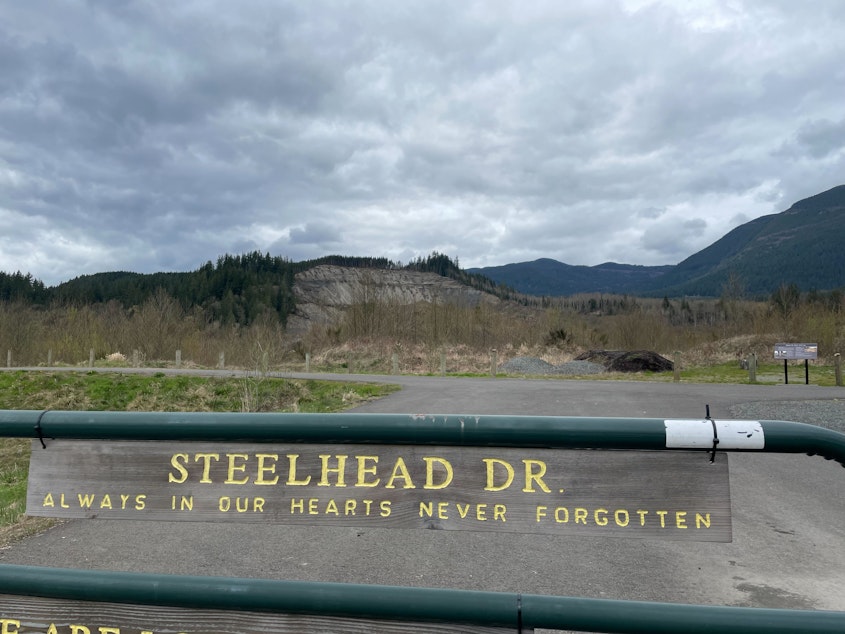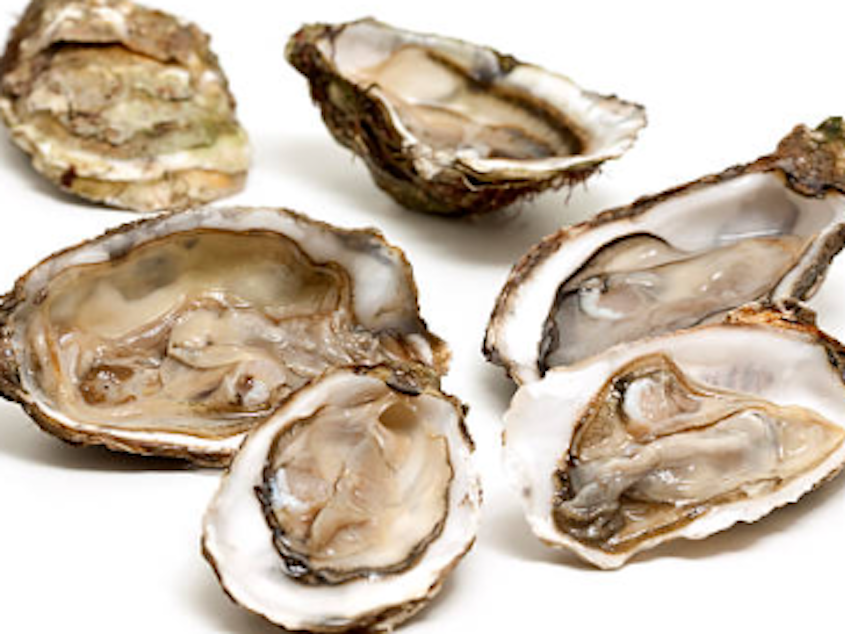Should I stay or should I go now ... from King County?: Today So Far

- The Seattle area housing market is experiencing a few changes as buyers shift their focus, renters feel more pressure, and some folks leave town altogether.
- What happens if Congress dies? Some lawmakers want to update contingency plans.
- The Seattle City Council is considering new regulations on gig-based companies, like DoorDash, Uber Eats, or Instacart. But not everybody likes the idea.
This post originally appeared in KUOW's Today So Far newsletter for April 7, 2022.
There's not much I can really say about the region's housing market that we aren't already aware of — it can kind of suck. Unless you're selling a house (that you bought in 19...something something with a jar full of nickels and wishes and are now selling it for more than a million dollars). In that case, the housing market is awesome.
But according to Redfin, everyone from buyers to renters are adapting, and that can mean moving out of town.
A total of 92% of Seattle area homes are selling within two weeks at a median price of $751,000 (up 15% from last year). A few things are happening as a result of the rising costs. Some buyers have shifted their focus to condos as a less-expensive alternative to single-family homes. This shift is pressing up against the rental market, making it difficult for renters to find a place at a reasonable price.
Redfin Chief Economist Daryl Fairweather tells KUOW that the real estate company has seen a trend of Seattle residents and homebuyers looking to move to the exurbs and even out of the state to cities like Phoenix or Nashville. This echoes recent reporting out of The Seattle Times which found that King County lost residents over the past couple years. King County didn't lose a lot, but it was the first time in a long time the population declined. Neighboring counties like Pierce and Snohomish have experienced population upticks. Personally, I know locals who have taken lucrative offers from cities like Tulsa to move there. And in full transparency, I'm about to be one of these residents who pulls up stakes in Seattle.
Read more Redfin insights here.
RELATED: Seattle's housing market is so hot, homebuyers are getting burned
What happens if Congress dies? Apparently, Congress doesn't exactly know what would happen if there were a disaster and a significant number of lawmakers were no longer available. But some lawmakers are attempting to update contingency plans for dire scenarios. One of them is Washington Congressmember Derek Kilmer, who had an epiphany during this year's State of the Union address. With so many lawmakers in one room, and Covid going around, and past incidents (like political shootings and an insurrection), there wouldn't be many lawmakers left if something scary happened.
"It struck me that if, God forbid, something happened to the Capitol, under the current law, Congress would (consist) of the people who had Covid and the folks who were boycotting," Kilmer said in an interview with NPR. "You could literally have a Congress that was consistent of 15 people."
Read more here.
RELATED: More roads, more EVs. Can Washington do it?
The Seattle City Council is considering new regulations on gig-based companies, like DoorDash, Uber Eats, or Instacart, among others. Up for consideration are minimum pay requirements that take into account the actual time and travel it takes to get the job done. For example, one delivery driver recently told KUOW that her rating takes a hit every time she delivers to West Seattle, because the company won't acknowledge that the West Seattle Bridge is out of service. But they say that even regular trips don't account for real time and distance. There are critics of the proposal. The main argument is that this will raise costs for the services. As we all know, companies often won't absorb higher costs; customers end up paying for them, which could mean that customers who rely on such deliveries will take the hit.
Read more here.
AS SEEN ON KUOW

A sign marks Steelhead Drive, the main residential street once covered in debris from the Oso Landslide. KUOW's Soundside revisits the story and speaks with locals who stayed in the area after the tragedy and how they are trying to revitalize the area. (Libby Denkmann / KUOW)
DID YOU KNOW?
I shouldn't admit this as a radio station employee, but I'm a podcast listener. I love them. I make them. I think they're pretty cool (and by the way, KUOW does have a few of its own). But do you know where we even get the term "podcast?"
Back in the day, iPods were all the rage for your listening pleasure. Kids, iPods were like your smartphone, except they didn't do anything other than play music. I think they may still exist. After the iPod was introduced in 2001, some nerds figured out that they could make their own talk shows and other non-music content and "broadcast" it themselves, online. In 2004, BBC journalist Ben Hammersley noticed this audio blogging trend and coined the term "podcast," combining "iPod" and "broadcast." Of course, podcasts have since grown beyond the boarders of iPods and have evolved into successful programs that come in a range of formats.
ALSO ON OUR MINDS

The FDA is working with federal and local authorities on a multistate outbreak of norovirus illnesses linked to raw oysters. The oysters were harvested in British Columbia and have been distributed in 13 states, including Washington state.

